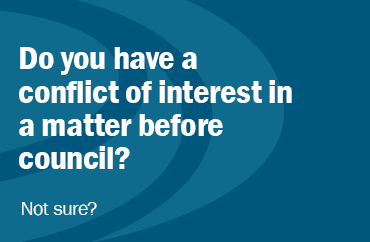For Municipalities
We take complaints from the public about Saskatchewan cities, towns, villages, resort villages, rural municipalities and northern municipalities. We also take complaints about council members, including alleged conflicts of interest or code of ethics violations.
Municipal Complaints Process
When taking municipal complaints, our general processes apply, such as asking the person making the complaint to try to resolve the matter themselves first and determining whether there is a role for our Office. Sometimes people contact us because they disagree with a particular municipal project or bylaw. We do not take complaints about bylaws or other decisions of council that have been properly made and passed, but we could review whether a bylaw was improperly made or unfairly applied. People who are unsure whether we can review their complaints are welcome to contact us.
When possible and appropriate, we may help to resolve the problem informally. If that does not work or does not fit the situation, we may assess the file for investigation. If we decide to proceed with an investigation, we will provide a written notice of investigation to the applicable person. For administrative complaints about a city, municipality or northern municipality, we will give notice to the administrator, commissioner or manager. For complaints about alleged conflicts of interest or code of ethics violations of a council member, we will give notice to the mayor or reeve – but if the complaint is about the mayor or reeve, we will give notice to the Minister of Government Relations. These requirements are described in 23(1)(c) of The Ombudsman Act, 2012.
At the conclusion of an investigation, we will review our findings and decide whether to make recommendations. If we are planning to make recommendations, we will provide our draft findings to the person who received the notice of investigation. This gives him or her an opportunity to review what we have found and to make submissions to us in response. After that, we decide whether to make edits based on those submissions and then provide the final report and recommendations. We also provide our conclusions to the person who made the complaint. Cases with recommendations made are summarized in our annual report and may be released publicly in advance of that if the Ombudsman deems the information to be in the public interest.
For examples of the kinds of municipal complaints we have taken, see our annual reports or public reports.
Conflicts of Interest
As part of their role, council members are expected to work in the interest of the community rather than their own personal interest. While it is not unusual for a council member to have a conflict of interest, it is important to be able to identify when you are in a conflict and to take the appropriate steps. For more information, see our conflict of interest brochure and checklist. For some specific examples of conflicts of interest that we have investigated, see our Public Reports page.
Code of Ethics Violations
As defined in legislation and regulations, municipal councils must have a code of ethics. in addition, they must have a process for handling any complains about potential violations of the code. For more information, see our document: Handling Complaints Under Your Code of Ethics.
Educational Opportunities
In addition to the information available on this website, we can provide presentations, webinars and “Fine Art of Fairness” workshops to municipal council members and employees. For more information about these opportunities and for copies of past webinars, visit our Presentations and Training page.
Print Materials
Copies of our print materials are available on the Brochures and Posters page, including materials that are specific to municipalities. Print copies are free upon request.


